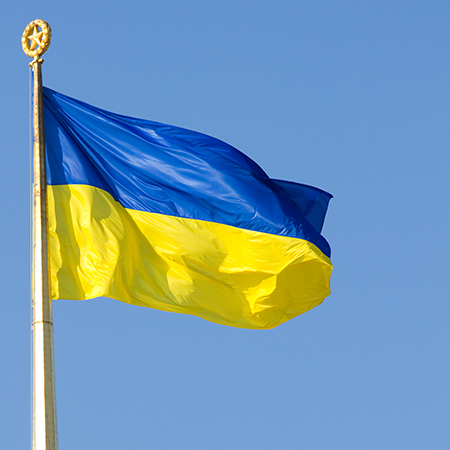Ukraine’s anti-corruption reform under threat
A reform requiring Ukraine’s politicians and officials to declare their assets online in order to fight corruption is under threat. Some lawmakers and anti-corruption activists say there are persistent attempts to sabotage the measure, which is backed by the International Monetary Fund (IMF).
As reported by the Reuters news agency, the reform has faced hostility from the start, and the original August launch date was delayed because the software wasn’t given security clearance. Several lawmakers introduced bills to try to water the reform down and others want it delayed.
The system finally went live in September but MPs say it is full of problems that make it difficult to complete the form properly. Its designer says those problems were introduced after he handed control of the software to the authorities.
The consequences of Ukraine missing the October 30 deadline for some 50,000 people to declare their wealth may be far-reaching, and the prospect of that happening prompted the EU to send an urgent letter to the speaker of parliament.
The International Monetary Fund sees the deadline as a “structural benchmark”, and failing to meet it would weaken the case for the IMF to disburse more aid as part of a $17.5bn bailout by the end of this year.
According to Reuters, Artem Shevalev, Ukraine’s representative to the European Bank for Reconstruction and Development, said it didn’t look feasible for Ukraine to implement difficult reforms such as the asset declaration system by then.
“When I read some of the feedback from some of my colleagues in Kiev it is clear it is very difficult technically, but also the level of disclosure is unprecedented,” Shevalev said. “It’s anything, literally anything, even down to every piece of jewellery you have.”
Meanwhile, the EU has linked the reform to granting a visa-free regime to Ukraine. If the reform fails, it would add to the impression that Kiev’s Western-backed leaders do not have the will to tackle corruption. Other measures, such as privatizing state companies or cleaning up the customs service, also face threats, reported Reuters.
In other related news, Forbes reported on Naftogaz – one of Ukraine’s most important companies. One month ago, it saw a prized asset stripped and handed over to government authorities inside the economy ministry.
The move was against the Petro Poroshenko’s administration’s policy to eventually open Naftogaz assets up to the private sector. It threatened nearly a billion dollars in loans from the World Bank and European Bank for Reconstruction and Development. And until they stepped in and threatened to pull the plug on Naftogaz financing, Poroshenko’s cabinet members backed off. But the damage may have been done.
To a large extent, the attempted takeover of Ukrtransgaz is a reminder of how business gets done in Ukraine. If there ever was a country where the 1% rules everything from the coal to the courts, it’s this one, reported Forbes.
The Kiev Post, an independent English language newspaper that supported the 2014 Euro Maidan revolution against pro-Russian president Viktor Yanukovych, appears worried about the situation in Ukraine. A recent investigative series shows the paper’s concern about the country’s inability to break from “croynism, kleptocracy and nepotism” – their words.
Ukraine is 130th out of 168 countries ranked by Transparency International’s Corruption Perception Index 2015. It is worse than Russia (119) in terms of corruption. In the former Soviet Union only Tajikistan (136) and Uzbekistan (153) are worse.
Meanwhile, the European Union is slated to spend upwards of €16m next year in a last ditch effort to fight official corruption.
As reported by Forbes, Ukraine has been in perpetual crisis mode since the fall of the Soviet Union and independence 25 years ago. Since then, the country has rifled through 24 prime ministers. In an informal survey of a dozen fund managers from Des Moines to London, Volodymyr Groysman, isn’t much better than Arseniy “Yats” Yatsenyuk, Washington’s favourite, who took over Ukraine after Yanukovych’s ouster in February 2014.
But an optimistic Groysman recently said he was confident that within three years time, Ukraine would be better than where it is today.
A recent report by Freedom House placed corruption high on the listed of Ukraine’s biggest problem with Western lenders. It is also its biggest obstacle in the quest to become the next Poland.
Last December, Vice President Joseph Biden criticised Ukraine’s slow progress on curtailing the marriage between super rich businessmen and politicians.
“If the people resign themselves to exploitation and corruption for fear of losing whatever little they have left, that would be the death knell for Ukrainian democracy,” Biden told them. “Not enough has been done yet.”
Forbes also noted that one of the reasons large-scale privatisation is so difficult in Ukraine is because its state-owned assets are often necessary to cover the losses and inefficiencies of the private sector. If companies like Naftogaz were privatised, or if the corporate governance is fixed, most of the inefficient private businesses can go bust. They will no longer have subsidised energy prices and tariffs to ransack for their other enterprises.
25 October 2016
Disclaimer: All views, opinions and accounts included in the RAI News Section are those of the authors; their inclusion does not imply official endorsement or acceptance by RAI. The News Section reflects the selection of topics of informative value to the organization and its stakeholders. Its content is taken from press/media sources and does not in any way reflect official RAI Secretariat policy. RAI Secretariat is not responsible for possible inaccuracies in media reports.

